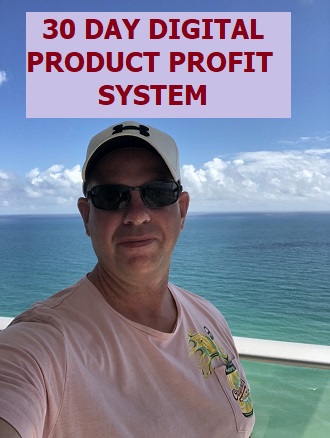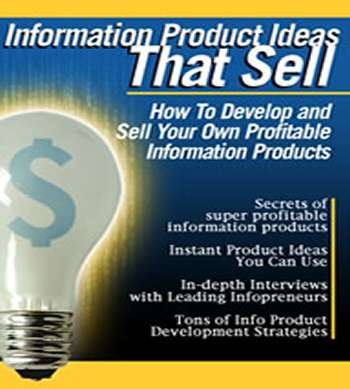Had a question come in last evening from an ambitious online marketer inside InfoMarketer’sZone  who had put together 3 30-page ebooks that they now wanted to sell online…their question (as you may have guessed) was how should they best do this?
So today, you certainly have some terrific options.
Option 1:Â Upload To Ebook Retail Site
One of the “hot” options today is to convert your ebook to a format that will work with Amazon’s ebook directory (feeding the red hot Amazon Kindle) and epub format that is used by iBookstore available to Apple iPhone and iPad users…and yes there are a few of those!
The Pro of self-publishing to one or both of these platforms is that you get wide exposure across their Millions and Millions of customers AND position yourself within an ecosystem fo ebooks that is 0nly going to get much bigger.Â
The downside of publishing on these platforms is that you confine yourself to an expected price range that typically falls between $3 and $10. So you want to ask yourself these questions:
a) Is the strategy to get more customers at a lower price point where I can upsell them (within the ebook or report itself) or build more titles where my profit goals will be reached by volume rather than profit margin on one product? For example, a strategy you may use is to produce a 20-page ebook that shares some great tips on your topic, and then upsells your reader to a more expensive course, teleseminar, membership site, home study course, book, event, seminar, etc…in which case your $3 ebook on Amazon or iBookstore is really a lead generator for back-end products. Now that makes sense.Â
b) Am I more interested in getting my name out, building brand and credibility than profits? If that’s the case, then selling your ebooks on one of these platforms makes great sense
c) Is my strength in publishing dozens of small reports/ebooks rather than diving deep into a particular topic? In our information product businesses, we tackle a niche market with a combination of ebooks, home study courses, seminars and membership sites – diving deep into our niche markets.  Another strategy though is to go wide instead of deep – in that case retail websites like Amazon and iBookstore are a very good fit.Â
Today, turning your MS Word ebook into a Amazon Kindle or iBookstore titles is relatively simple – there are templates for MS Word, MS Word converters and companies like Createspace that will handle the conversion for you (Though you will have had to setup your title and pay an extra $69 to get them to do the conversion for you)
You can also convert your own files using the guidebooks available without too much trouble:
For Amazon – see the Kindle Direct Self-Publishing Guide
For iBookstores – you can use Smashwords as a middle-man to help you get into iBookstore, for that they take 10% on your royalty (70% on iBookstore becomes 60% from Smashwords) OR you can go directly to iBookstore here, assuming you meet the basic guidelines which are:
Technical Requirements:
- An Intel-based Mac running OS X 10.5.8 or later
- At least 1 GB RAM
- QuickTime 7.0.3 or later. This is so you can encode and deliver content using our dedicated software.
- At least 10 GB of available hard drive space (more for larger catalogs) is recommended.
- A broadband internet connection with an upload rate of 1 MB/sec or faster is recommended.
Content Requirements:
- ISBNs for all titles you intend to distribute
- Able to deliver book content in EPUB format, passing the latest version of EpubCheck
Financial Requirements:
- A U.S. Tax ID. Anyone (including non-U.S. residents) can obtain a U.S. Tax ID by phone, fax, or mail. If you don’t have one, request one from the IRS.
- A valid iTunes Store account, with a credit card on file
- Apple does not pay partners until they meet payment requirements and earning thresholds in each territory. You should consider this before applying to work directly with Apple as you may receive payments faster by working with an Apple-approved aggregator.
By Apple approved Aggregaror, they refer to companies like Smashwords I have listed above who will front-end some of the process and payment exchange to make this process simpler – for 10%, it is likely worth it.Â
Option 2: – Sell From Your Own Website
I am still a huge fan of creating your own website, getting an account with a payment processor (Paypal, Clickbank, 2Checkout.com, etc…) and selling your ebook from your own website keeping 98% of the profits.Â
Why?
A good deal of your success selling your own ebooks online (whether you are selling from Amazon, iBookstore or your own website) is your ability to drive traffic to those sites.Â
That means marketing – and today that means generating content, social networking presence.Â
So if you are generating content ANYWAY to drive search results and traffic to gain attention to your ebook, why not drive that traffic to your own salespage rather than a retail directory?Â
Sure, at some point in the not-to-distant future, ebook readers will make publishing to Kindle, iBookstore and other leading ebook reader directories a MUST…but today, ebooks are still selling like crazy from your own website – and this is where your information can make you BIG profits.
Setup your own web page – you could simply do this by setting up your own WordPress blog (free), using a basic (free) template or invest in a theme package like Thesis, Semiologic, etc…if you want some additional choice and simplification with setting up/managing your blog. You want to have at least one landing page (sales page, opt-in page, etc…) where you capture your visitor’s attention and sell them on your ebook/report – on this page you would place a link to some of the payment processors already mentioned (Paypal, CB, 2Checkout, etc…) That will allow you to sell directly from your website and keep all of the profit (minus a few percentage points for payment processing fees)
Option 3:Â Do Both…But Link Them
As you may have guessed from reading the two options above, it really does make sense to pursue a strategy of selling information using both a retail and organic website approach.
Specifically, one option you have is to pull a chapter from a larger ebook, book, course, or membership site and place that on the ebook directories where inside this “mini” ebook you link back to a higher-end product you offer directly from your website.Â
We’ve been working this angle for the last few months and have observed upwards of 20% conversion from the lower-end products available on Amazon to the $50+ enhanced information packages we sell on our various niche websites.Â
As you can see, you will get the best of both worlds — selling more of your ebooks online.Â
If you are ready to jump in with both feet to writing and publishing your own ebooks to sell online…check out InfoMarketer’sZone – the #1 site wealthy information publishers are choosing to hang out, keep up with the latest trends and methods for making even more money with information and ebooks.


